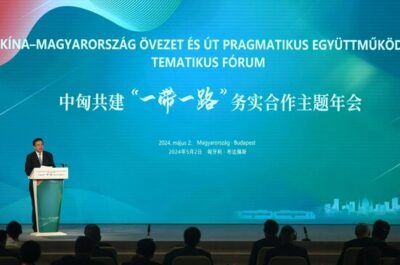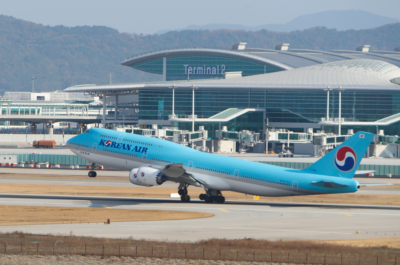European arrivals were mostly down in 2013 to Vietnam. The UK and particularly Russia were the only large inbound markets to record a growth. Russia becomes now Vietnam’s largest source of visitors from the European continent…
HANOI- Vietnamese authorities can be highly satisfied about the evolution of Europe in 2013: looking at data, Europe recorded a growth of 12.9% last year with over a million travellers. This looks better than the average growth of all arrivals which reached “only” 10.6% at 7.57 million. Europe represented 13.8% share in 2013, down however from 16.6% a year earlier.
But the growth of Europe is mainly due to rocketing figures from Russia. In the last three years, the total number of Russians progressed from 102,000 in 2011 to almost 300,000 arrivals in 2013, almost tripling total arrivals. Russian travellers have jumped as more of them enjoy beach holidays, especially Danang and increasingly Nha Trang. The latter is regularly linked by charter and leisure flights to Russia.
By comparison, France – until 2012 Europe’s largest inbound market for Vietnam- declined in the last three years by 0.7%. In 2013, Vietnam saw consequently less visitors from France than two years before. Worrying is also the trend from Germany and Scandinavia. While Germany and Denmark are down by over 8%, the total number of Finish travellers dropped by almost 10% while Sweden was the worst performer in Europe, down by almost 12%.
Reasons behind this drop are various: of course, economic crisis played a role in declining figures –although Thailand or Indonesia have experienced a rise from West European travellers over the last three years; air transport to Vietnam is slightly more expensive than to Thailand or Malaysia; visa facilities still need to be improved. Although obtaining a visa-on-arrival is becoming slowly easier, the cost of procedure and the visa fee itself remain higher than in other countries.- none to say to the complicated issuance of the visa once arrived in Vietnam.
Finally, little is done in terms of the promotion and marketing in Europe, even in important markets such as France and the UK. Vietnam seems to lack the will to fund properly its promotion. The budget for marketing and promotion has even been reduced from US$ 2.3 to 1.4 million between 2011 and 2012. Marketing initiatives are consequently left most of the time to the private sector, which generally assures only the promotion of Vietnam at travel shows.
Polemics rose last year about the ways to fund tourism after the government mulled out the option of introducing a one dollar tax per day of stay for visitors in a bid to promote tourism. Especially as visas fees have sharply increase early 2013 already. A visa now costs a minimum of US$ 45 compared to US$ 20 to 30 in most other countries in the region. Tourism professionals believe that the fee idea –if it is implementing- would probably further reduce the total number of travellers.
Its implementation would be also very complicate as the fee would be per day and not per stay – as suggested in a working paper of the Tourism Working Group of the Vietnam Business Forum (VBF), one of the first public-private dialogue projects implemented by International Financing Corporation FC and the World Bank and supported by American and European Chambers of Commerce.
Last December, Vietnamese news Thanh Nien Daily reported that at a meeting of tourism companies and relevant authorities in Hanoi, Vietnam National Administration of Tourism (VNAT) Director Nguyen Van Tuan stressed that the proposed tourism fee was a necessity. According to him, the proposal has been included into a government draft resolution on tourism development for 2013-2020. The fee could bring some 20 million dollars in revenues.
During the debate, professionals looked in fact dubious about the effectiveness of such a fee and also about the way it would be used.
Bui Cao Son, director of Cruise Ha Long Company, said that increased fees at Halong Bay for foreign tourists have brought anything but tangible results in terms of improving facilities and services. “In 2013, around 3 million international tourists visited Ha Long and the province collected up to $84 million in revenues, not including revenue from domestic tourists. Where has the money gone as Ha Long Bay’s destinations continue to deteriorate?” Son declared according to Thanh Nien Daily website.
In its working paper, the VBF advocates to “consider reducing the fees for visas and raising the money from other indirect sources. All or the majority of neighbouring countries are spending much more […] on promoting tourism and we believe Vietnam should do more in this area to retain its current growth rates[…] Vietnam needs to develop a more comprehensive and sustained marketing campaign highlighting Vietnam’s attractiveness because of its rich cultural heritage, its outstanding natural beauty including beaches, its friendly people and delicious and varied food dishes’’.
“Our perception is that many of the marketing efforts are poorly planned and poorly executed and that this results in an ineffective use of the limited funds available. We suggest that the Vietnamese government allocates more funds towards tourism promotion campaigns and operates in close co-operation with the foreign private tourism and travel providers to make best use of such additional funding as they will be able to identify what the various nationalities like and are interested in”.
“We understand that there are limited funds currently available but we also believe that the funding needed for this could be raised through a tourism levy collected at hotels. Even a small levy of US$ 1 per stay would raise several million dollars per year. Similar levies were made in Hong Kong and Singapore in the 70’s and 80’s to help fund marketing initiatives and development of the tourism industries in those countries”.
So far, neither the levy on tourism nor new marketing initiatives have been implemented. Changing the way Vietnam thinks its tourism promotion will need a very deep introspection about State efficiency. Not such an easy step to take…

Luc Citrinot a French national is a freelance journalist and consultant in tourism and air transport with over 20 years experience. Based in Paris and Bangkok, he works for various travel and air transport trade publications in Europe and Asia.
























































